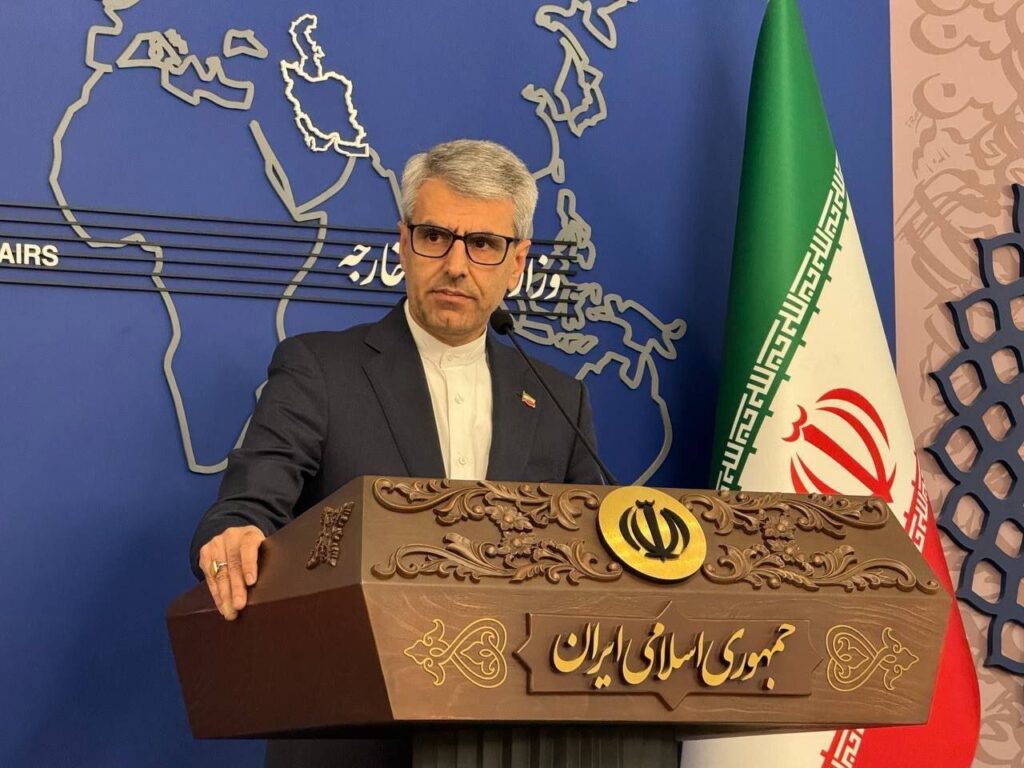Tehran – In the early hours of June 13, 2025, Israel launched a massive, unprovoked armed attack on Iran. This was a terrible act of attack by all definitions. Through the strikes of conditioned air, missiles and drone, it targeted residential areas, civil infrastructure, public agencies, and nuclear facilities that were subject to protection of the International Atomic Energy Agency (IAEA).
These actions constitute a serious and clear violation of international law, particularly international humanitarian and human rights law, and the UN Charter. In a particularly vicious example, the Israeli home construction strike killed 60 civilians, including 35 children and women. With a new wave of military operations, Israel has also begun targeting infrastructure and industrial sites.
The main excuse for the attack was Iran’s nuclear program. As a time repeatedly verified by the International Atomic Energy Agency (IAEA), Iran’s nuclear facilities will be used solely for peaceful purposes and remain subject to the most comprehensive and intrusive testing regimes managed under international sponsorship. The Israeli regime’s targeting of these protected civilian nuclear facilities has become a deliberate act of aggression and a serious violation of international law and the legal framework governing nuclear safety and security.
As reaffirmed by IAEA Director Rafael Grossi, during the recent emergency sessions of the UN Security Council, IAEA General Assembly Resolutions GC (XXIX)/RES/444 and GC (XXXIV)/533, we make clear that armed attacks on peace are devoting to peace. of international law. These resolutions highlight the significant risks that such attacks pose to nuclear safety and security, and their deep and unstable impact on regional and international peace.
The nature of the attack leaves no room for ambiguity. It constitutes an act of attack that directly violates international law. Legal thresholds are clearly crossed.
The Israeli regime has years and well documented records of the illegal use of force against sovereign states. The repeated targeting of civilians, critical infrastructure and protected sites reflect systematic light emptying against the principles set out in the UN Charter. This latest attack is not an isolated episode. This is part of a consistent policy that weaponizes coercion and openly ignores international legal order. The rule of law is not ignored. It’s been deliberately dismantled.
We must recognize the broader context of the actions of the Israeli regime. Israel is currently subject to a lawsuit before the International Court of Justice, which is suspected of conducting genocide in Gaza.
Leaders, including Prime Minister Benjamin Netanyahu, face credible allegations of crimes and crimes against humanity, including the intentional targeting of civilians, the use of hunger as a way of war, and the systematic imposition of collective punishment. These are not isolated cases. They form part of a lasting policy of militarized oppression, institutionalized immunity, and neglecting core doctrines of international law, including human rights and humanitarian law.
At a moment when the credibility of the international system is under intense scrutiny, the selective application of legal principles and reliance on political convenience threatens to replace the fundamental values of consistency, accountability, and the rule of law.
In response to the illegal and unprovoked aggression of the Israeli regime, the Islamic Republic of Iran legally exercised its inherent right to self-defense engraved in Article 51 of the UN Charter. This fundamental right allows the state to protect sovereignty and territorial integrity when it is subjected to an armed attack. Iran’s response strictly adhered to principles and parameters
It is defined by international law, and its actions are measured and necessary;
It’s appropriate under circumstances.
Specifically, Iran’s response was carefully coordinated to proportionate to Israeli threats and military attacks. The response targeted legitimate military targets, including command and control centres, strategic military facilities and operational infrastructure, directly linked to illegal attacks. Iran has always maintained strict compliance with the rules of international humanitarian law and prioritized minimizing collateral damages.
The UN Security Council’s failure to respond decisively to this offensive act represents a neglect of its fundamental responsibility to maintain international peace and security. In past examples, the council acted swiftly and unanimously. Following the 1981 Israeli attack on Iraq’s Osirak reactor, the council adopted resolution 487, denounced the strike and affirmed the sanctity of a peaceful nuclear facility. That precedent remains clear. The law remains clear. But today the council is paralyzed. Political pressure and protective shields are suppressed by protective shields expanded by small groups of powerful nations. This inaction could erode the foundations of multilateral systems.
Iran calls on the international community to condemn this offensive act, reaffirming its commitment to the UN Charter and the fundamental principles of international law. Sovereignty cannot be negotiated. Nuclear facilities under IAEA safeguards should not be targeted. Armed forces should not be allowed to replace diplomacy. The Israeli regime cannot allow rewrites the rules of international conduct through repeated violations and calculated provocations. The path to peace begins with accountability, and the international system must summon a will to support it.

